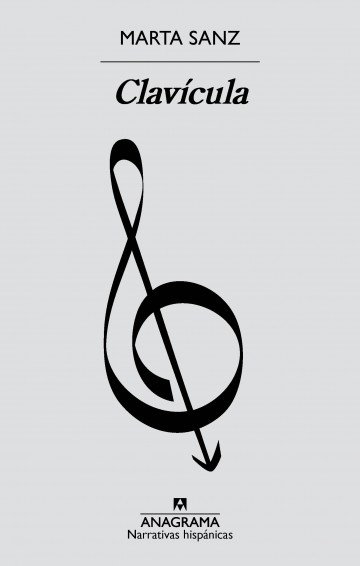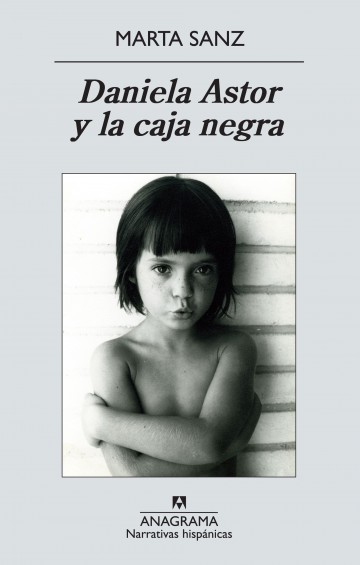| PAGES | 344 |
| SERIES | Narrativas hispánicas |
| PUBLICATION | 04/03/2020 |
El País
La Razón
El Diario.es
El Español
El Diario Vasco
Abc - Cultural
Gara - Zazpika
El País - Babelia
El Correo Español - El Pueblo Vasco - Territorios de la Cultura
Abc - Cultural
Diari de Tarragona - Encuentros
La Vanguardia
El Asombrario
El Norte de Castilla
El Periódico de Catalunya
La Opinión de Murcia (EFE)
Diario de Pontevedra - Revista
Revista Digital Dones
Tercera Información
La Voz de Galicia - Fugas
Diario de Burgos
El Diario Montañés
Vogue
Canarias7
Córdoba - Cuadernos del Sur
Diario del AltoAragón
Ideal de Granada
La Nación - Ideas (Argentina)
La Vanguardia - Cultura/s
Diagnóstico Cultura
Télam (Argentina)
La Voz de Galicia
Diario de Mallorca
Última Hora
La Provincia
El Correo de Burgos
Sur
Diari de Tarragona - Encuentros
Nius - Los libreros recomiendan

SERIES:Narrativas hispánicas
A novel about the dead and the disappeared, for whom the search still endures, and against a far-right that has never left and turned into a universal threat. A noir novel that prolongs the possibility of the political novel.
Paula Quiñones arrives in Azafrán as a volunteer to help locate civil war mass graves. Little by little, she integrates herself into the community and gets to know its power dynamics, governed by a family whose patriarch has just turned one hundred years old. The story becomes obscured, and the village becomes a threatening space in which Paula’s discoveries begin to put her in danger. Who were the dead that Paula is looking for? Who do the voices, that chase her like a tragic chorus of kids and women, belong to? A novel about economic and cultural violence, and about violence against women, that dissects accounts of memory.
«Sanz has few possible competitors in her generation. If someone is called to remain in posterity, it’s her (…) She has talent, brightness, and nerve. It's literature in its pure state (…) With each narration that carries her signature, the miracle of good literature is produced» (Ángeles López, La Razón).
«small red women—like so, in lowercase—is a subversive game that becomes a homage. The story of Paula, a middle aged inspector who arrives in the imagined location of Azafrán to work on a project of historical memory (…) The far-right’s boom in Spain and around the world has given this story an unexpected urgency. Or maybe not so unexpected (…) The novel takes from many genres and at the same time transcends them, manipulates them. But, like the previous two parts of the trilogy, it bathes in the noir and plays with it» (Juan Carlos Galindo, El País).
«Perhaps we could read the stunning, entertaining, bitter, challenging, indignant, sarcastic noir and red novel that is small red women out loud; Marta Sanz, one of the best and most daring narrators writing in Spain today» (Manuel Rodríguez Rivero, Babelia).
«She has written her most radical book. Voluntarily radical, and consciously subversive. (...) In this novel, Marta Sanz has drawn her literary poetics as a way of making politics with writing. The book is born from excess, and it sets out to be a blow to the goodwill regarding the deaths and murders during the Civil War» (José María Pozuelo Yvancos, ABC — Cultural).
«pequeñas mujeres rojas is brutal, vindictive, political, real, incredibly dark, not recommended for those who always gain from and praise the act of forgetting, prescribed for those who combat the audacity of not looking back. (...) A high-voltage story imbued with reflections about historical memory and violence against women....With great narrative intensity and powerful voices, Marta Sanz weaves together disquieting plots with profiles of characters who are both disturbing and disturbed, of those who became victims due to dignity and bravery, and of monstrous or exemplary women like Paula, in a choral story that affects the reader...Marta Sanz's pen opens the floodgates.» (Íñigo Urrutia, El Diario Vasco).
«Marta Sanz is a fundamental writer for this country (...) Sanz is acerbic, brilliant, crude, necessarily unpleasant. She picks at the wound, and is also the one who lets it rest so it can air out. (...) She's an author who thinks through language, an intellectual in constant conflict against sensationalism, against the culture of spectacles. (...) She investigates those who disappeared during Francoism, the femicides and the violence—among other abysses and panics—committed against women's bodies, without forgetting for a single instant to be 'profoundly literary,' because she believes that style is political» (Lorena G. Maldonado, El Español).
"The small red women are those that put their lives at risk during the war and didn't resign themselves to a passive victim role... We are faced with the reconstruction of a tragedy that deserves respect, justice, and reparation; on the other hand, that collective and demiurgic voice presents a provocative, disrespectful, and even hilarious discourse...The abundance of formulas and narrative registers is, without a doubt, one of the book's accomplishments and proof of the authors technical competence." (Iñaki Ezquerra, El Correo Español - El Pueblo Vasco - Territorios de la Cultura).
"Opening those time capsules removes the quagmire over which some built their reputations and wealth. An extremely noir novel with a very political background, where there is no space for concessions." (Miren Artetxe, Gara -Zazpika).
| PAGES | 344 |
| SERIES | Narrativas hispánicas |
| PUBLICATION | 04/03/2020 |
El País
La Razón
El Diario.es
El Español
El Diario Vasco
Abc - Cultural
Gara - Zazpika
El País - Babelia
El Correo Español - El Pueblo Vasco - Territorios de la Cultura
Abc - Cultural
Diari de Tarragona - Encuentros
La Vanguardia
El Asombrario
El Norte de Castilla
El Periódico de Catalunya
La Opinión de Murcia (EFE)
Diario de Pontevedra - Revista
Revista Digital Dones
Tercera Información
La Voz de Galicia - Fugas
Diario de Burgos
El Diario Montañés
Vogue
Canarias7
Córdoba - Cuadernos del Sur
Diario del AltoAragón
Ideal de Granada
La Nación - Ideas (Argentina)
La Vanguardia - Cultura/s
Diagnóstico Cultura
Télam (Argentina)
La Voz de Galicia
Diario de Mallorca
Última Hora
La Provincia
El Correo de Burgos
Sur
Diari de Tarragona - Encuentros
Nius - Los libreros recomiendan
TRANSLATION RIGHTS SALES
- Italy (Sellerio)
- Greece (Carnivora)


Marta Sanz has a PHD in Spanish Philology. She has published the novels El frío, Lenguas muertas, Los mejores tiempos (Premio Ojo Crítico 2001), Animales domésticos, Susana y los viejos (runner-up for the Nadal Prize in 2006), Lección de anatomía (2008), and in Anagrama, Black, Black, Black, Un buen detective no se casa jamás, Daniela Astor y la caja negra and Farándula (Herralde Novel Prize 2015). She has contributed various short stories to collections and has published El canon de la normalidad, a selection of her own stories. In 2007, she published Metalingüísticos y sentimentales, an anthology of contemporary Spanish poetry and, the same year, she received the Premio Vargas Llosa NH Story Award. She is also the author of the poetry collections Perra mentirosa and Hardcore, both in 2010. She frequently contributes to the Babelia cultural supplement of the El País newspaper.










